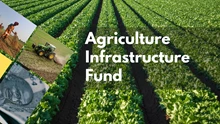
Farmers are feeling nervous about the introduction of artificial intelligence (AI) into their farming practices, and they have good reason to be concerned. The looming arrival of AI promises to completely transform conventional farming practices as scientists and agri-tech enthusiasts drive innovation forward. Here are seven key reasons why farmers are feeling nervous about this future transformation. Read On
1.Educational Gap: The advent of AI necessitates a shift in knowledge and skillsets. Farmers find themselves dealing with the need for additional education to effectively harness the potential of AI-driven solutions. The complexities of AI technologies demand a level of understanding that goes beyond traditional farming practices, posing a challenge for many in the agricultural community.
2.Lack of Internet Connectivity: There are still problems with internet connectivity in rural places where farming is prosperous. The dependence of AI systems on seamless internet connectivity raises concerns among farmers. The acceptance and usefulness of AI agricultural technologies are hampered by the fear of communication channel disruptions, which prevents the technologies from being seamlessly integrated into the current farming infrastructure.
3.Data Privacy: Data collecting is flooded in as more and more machines with AI built in. Modern agricultural equipment generates a stream of data with every action, which raises privacy and security concerns. Farmers worry about the privacy of their farming data because they think it might be misused or that third parties could access it without authorization.
4.Financial Burden and Uncertainty: The integration of precision agriculture technologies demands substantial financial investment. The upfront costs associated with acquiring and implementing AI-driven solutions pose a significant barrier for farmers, especially those with limited financial resources. Moreover, the uncertain return on investment further compounds the financial risk, leaving farmers wary of committing to AI technologies.
5.Dependency on Technology: The increasing reliance on AI technologies raises concerns about the potential consequences of technological dependency. Farmers fear losing autonomy and control over their operations as AI assumes a central role in decision-making processes. The prospect of abandoning traditional farming practices in favor of AI-driven solutions amplifies concerns about the erosion of agricultural traditions and practices.
6.Outsider Influence: The origins of artificial intelligence in the technology industry have separated innovators from farmers on both a cultural and geographic level. Farmers' concerns are made worse when people with no background in agriculture introduce AI-powered solutions. The imposition of unfamiliar technologies by outsiders further alienates farmers and complicates the adoption process.
7.Disruption of Livelihoods: The transformative nature of AI in agriculture threatens to disrupt traditional livelihoods. As AI-driven automation becomes more prevalent, there is concern about the displacement of manual labor and the following impact on rural economies. Farmers worry about the possibility of socioeconomic unrest in rural communities as well as the loss of conventional farming jobs.
The integration of artificial intelligence into agriculture holds immense potential for enhancing productivity and sustainability. However, the concerns voiced by farmers underscore the need for careful consideration of the socio-economic implications and the implementation of supportive policies to ensure a smooth transition towards AI-enabled farming practices. Addressing these concerns will be crucial in fostering trust and facilitating the widespread adoption of AI technologies in agriculture.










